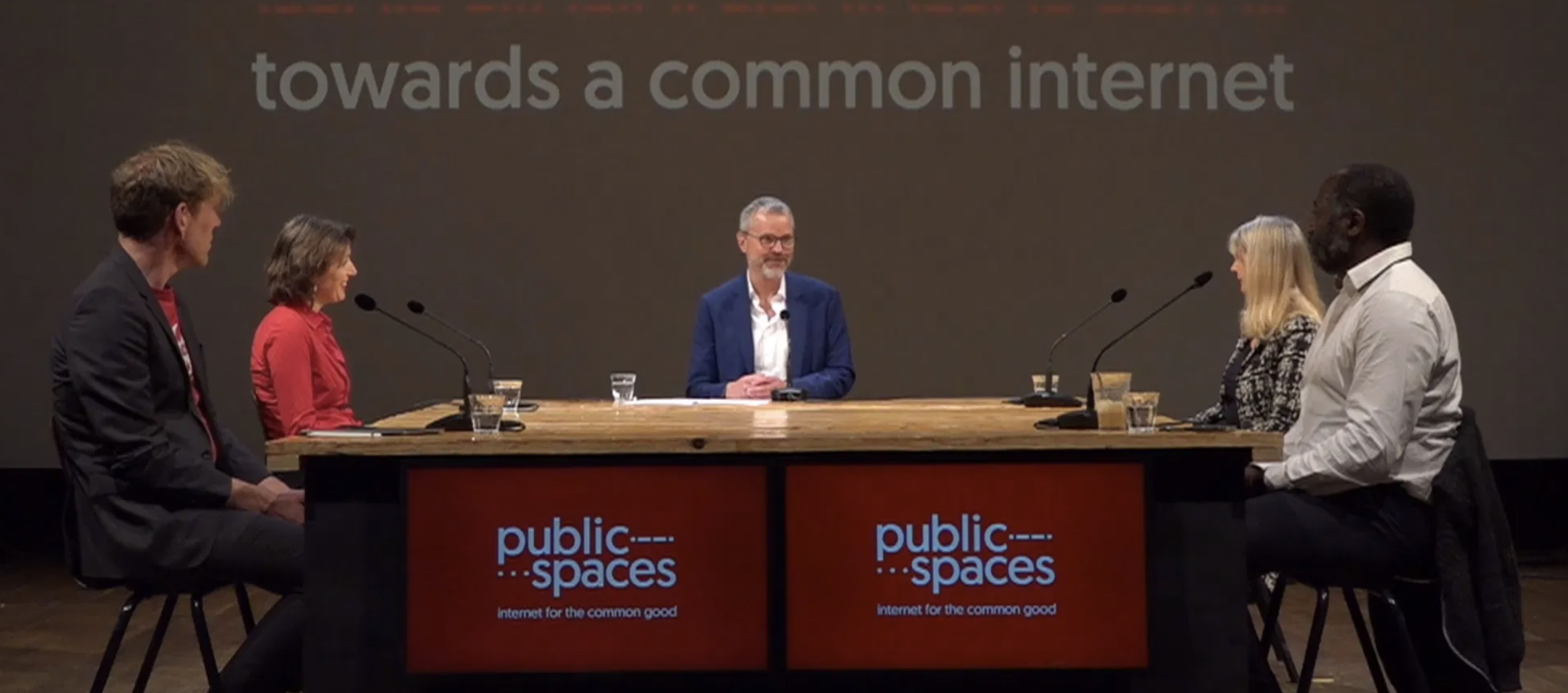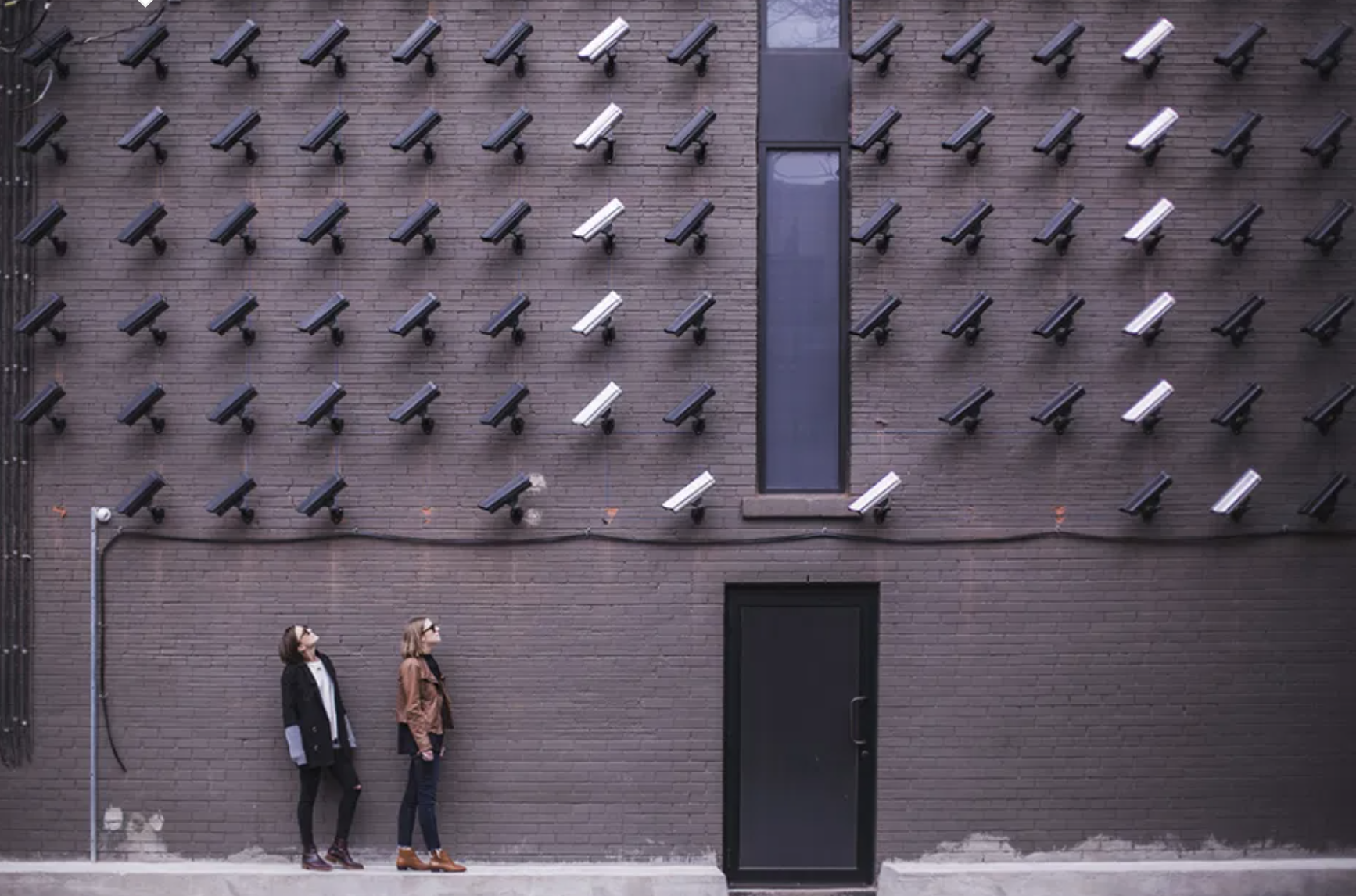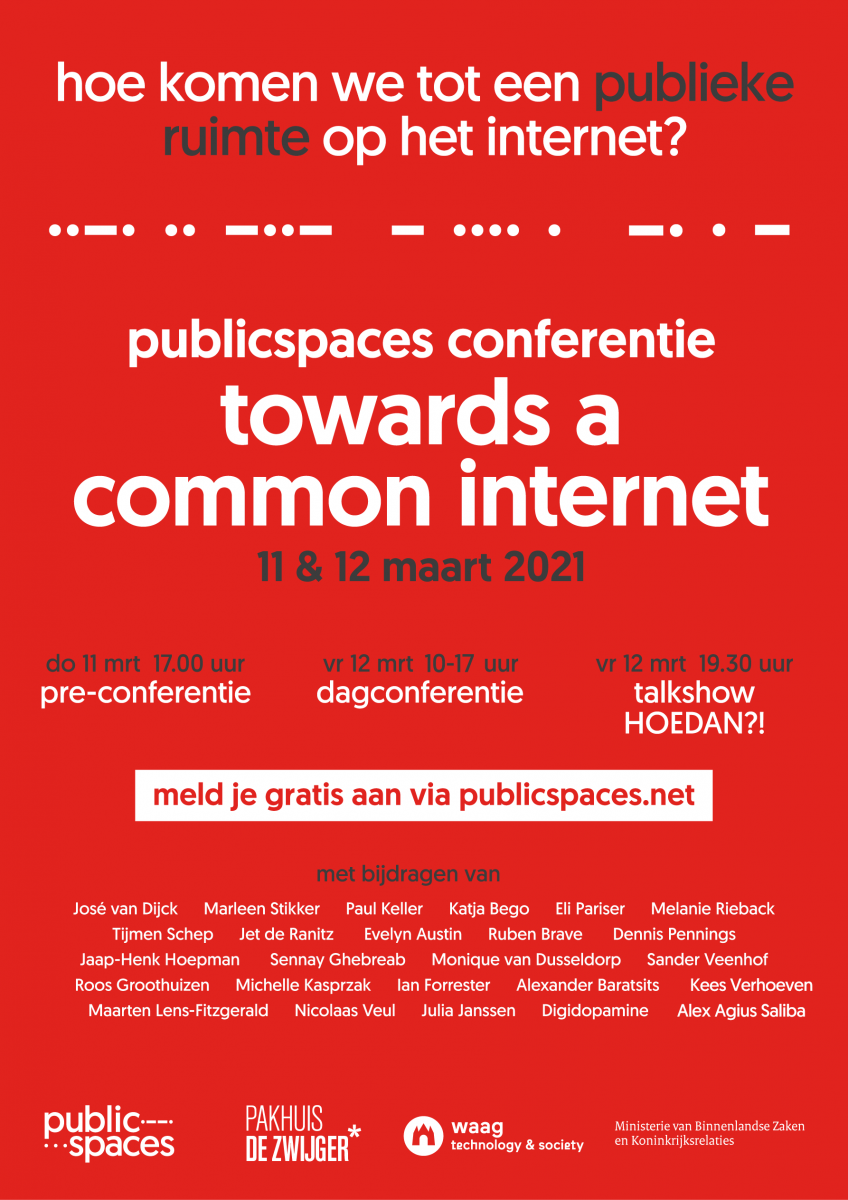In 2018 — almost thirty years after the invention of the World Wide Web — many essential applications on the internet, while being indispensable tools in our lives as economic and social citizens, have turned into vehicles for political control and economic profit. In these essential applications, citizens are no longer subjects, but objects. We share a common view that an alternative is necessary and are reimagining the internet as a public space. Therefore we formed a coalition to design a new platform for social interaction, where users are not viewed as exploitable assets or data sources, but as equal partners that share a common public interest. We, as founding partners, call this coalition PublicSpaces.

Our goal
PublicSpaces is committed to providing an alternative software ecosystem that serves the common interest and does not seek profit.
Our values & principles
Open
- the software ecosystem is equally accessible to any person, network or organisation.
- the software ecosystem operates independently from any government, commercial or particular political influence.
Transparent
- the used technology is fully accessible and reviewable.
- governance of the software ecosystem will be fully reviewable.
Accountable
- users are verified and the provenance of content can be fully disclosed.
- the software ecosystem offers the highest possible guarantee of protection of data — both of content and users.
- the software ecosystem does not hold or own any personal data of its users.
- governance of the software ecosystem is bound by the founding statutes that guarantee the independence of commercial and political influences.
Sovereign
- users are not products — the wellbeing and empowerment of users will always be the primary concern.
- users have full control over their personal data, their content and interactions.
User-Centric
- the software ecosystem employs ‘privacy by design’ as a basic design principle.
- the software ecosystem uses the tenets of the ‘Time well spent’ movement as guidelines for any implementation.

Our guarantees
In our view, founded in our values and principles, the internet should house truly public spaces, where specific guarantees can be extended to all those who enter these public spaces:
- User data are safe and can never be provided to third parties.
- Users will always have complete access to all their data.
- No other user data than strictly necessary for the operation of the software ecosystem will be gathered and stored.
- The provenance of content will always be guaranteed, thus making it a lot harder for fake news to emerge.
- Not one single party will ever have complete control over the user experience or governance of PublicSpaces; we will aim for a distributed control mechanism
- PublicSpaces serves no political or commercial goal other than is stated in the public record for all to see.
Our ask
We invite all parties who endorse our values, principles and guarantees and are willing to co-design PublicSpaces, to join the coalition as a participating partner.
PUBLICSPACES CONFERENCE #1

The internet is broken, but we can fix it and replace broken parts. In this conference, we will look for ways how we can make the internet a healthy public space again. Therefore, on Thursday, March 11 from 17h00 CET onwards, we will gather together a network of organisations and individuals who are committed to working on digital public spaces in Europe. An evening filled with several informed presentations of experts on the recent agenda which is unfolding to build a European alternative. No longer dependent on the tech giants of Silicon Valley. An alternative that values our freedoms and is the exact opposite of the state surveillance system which is constructed in China. This conference is designed to kickstart lasting cooperation and a network of organisations and developers that are committed to fixing the internet. A collective where we are able to exchange ideas and cooperate on specific projects. Bringing different networks together from areas such as digital rights, open data, civic tech, and bridging these communities with those who have expressed their need for digital public spaces: politicians, policymakers, and organisations with a public mission who want to be able to use technology that is fully in line with the common public values that are central to their work.












